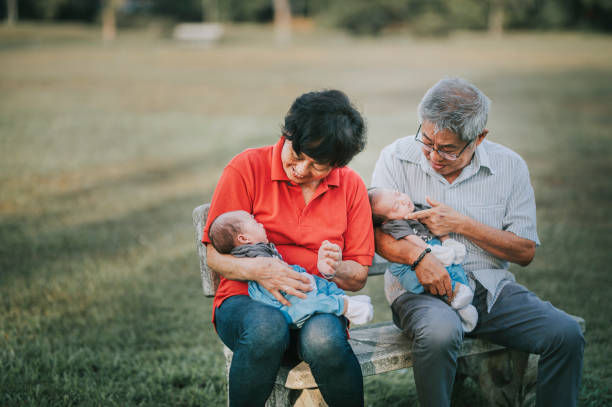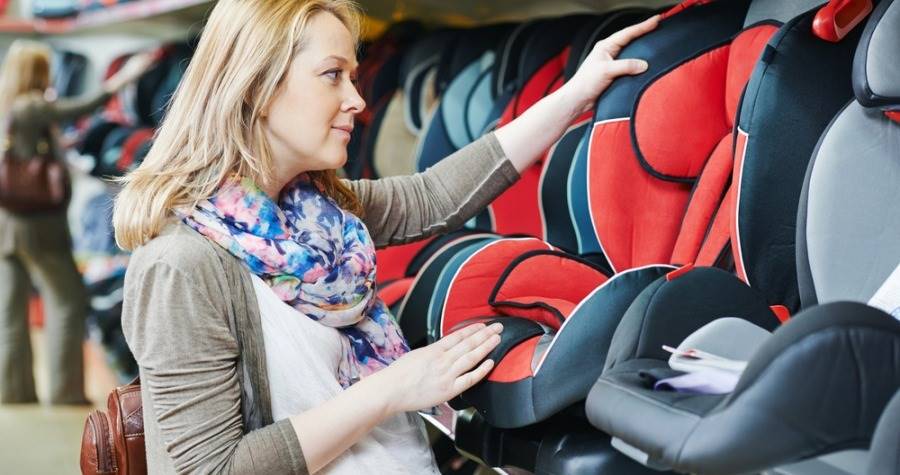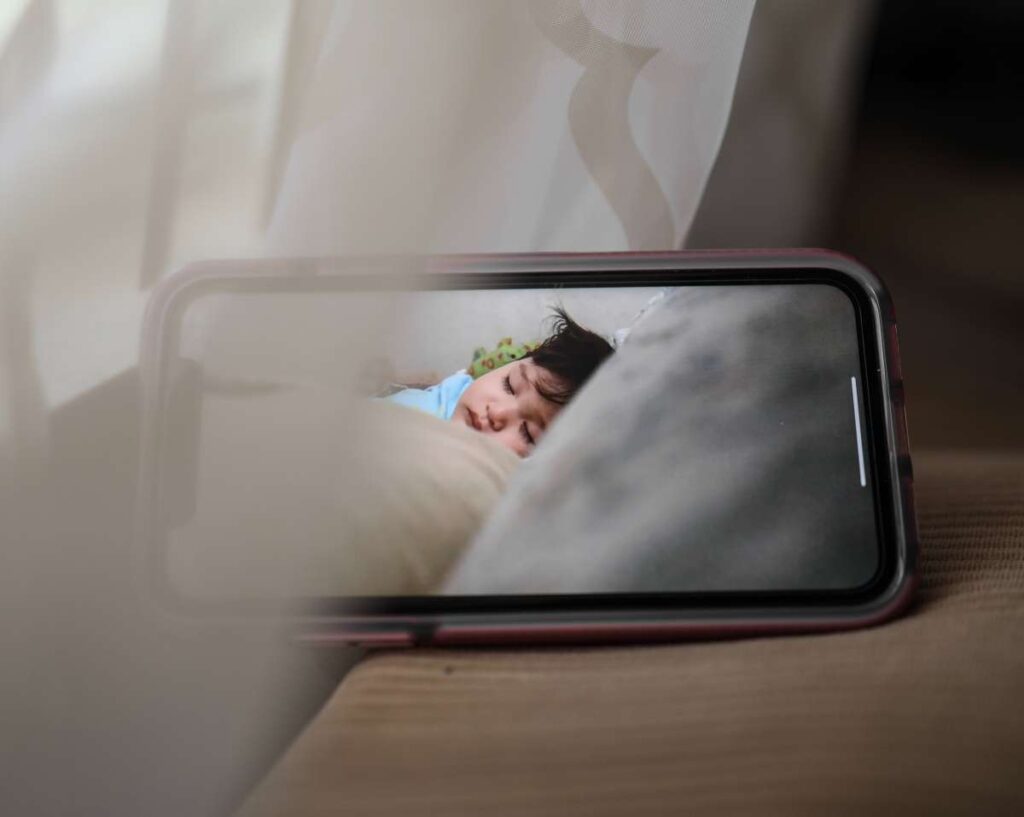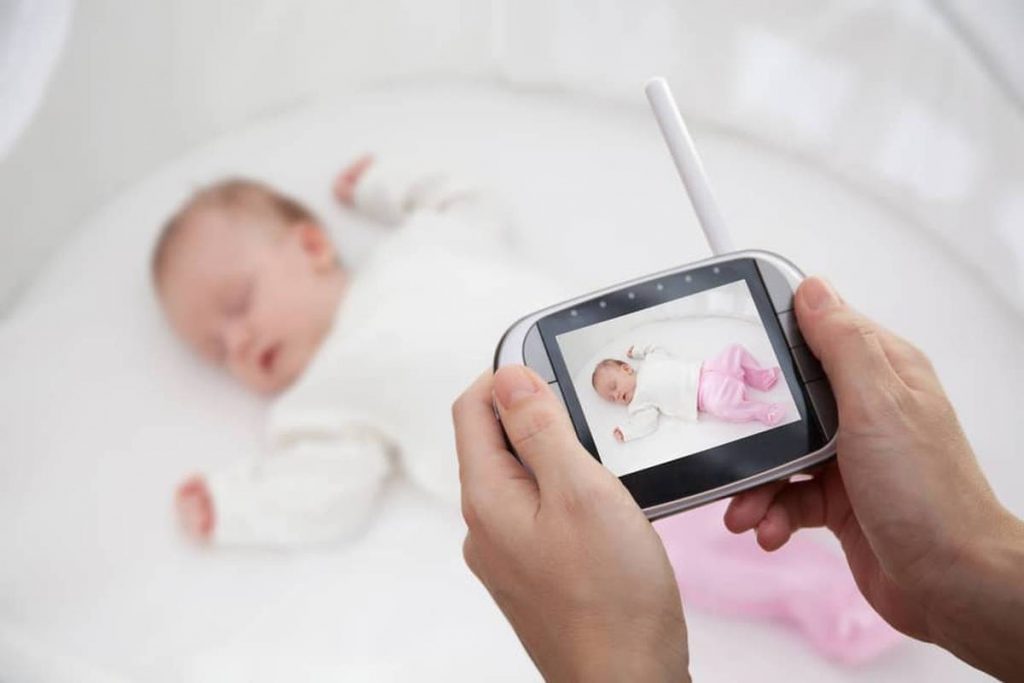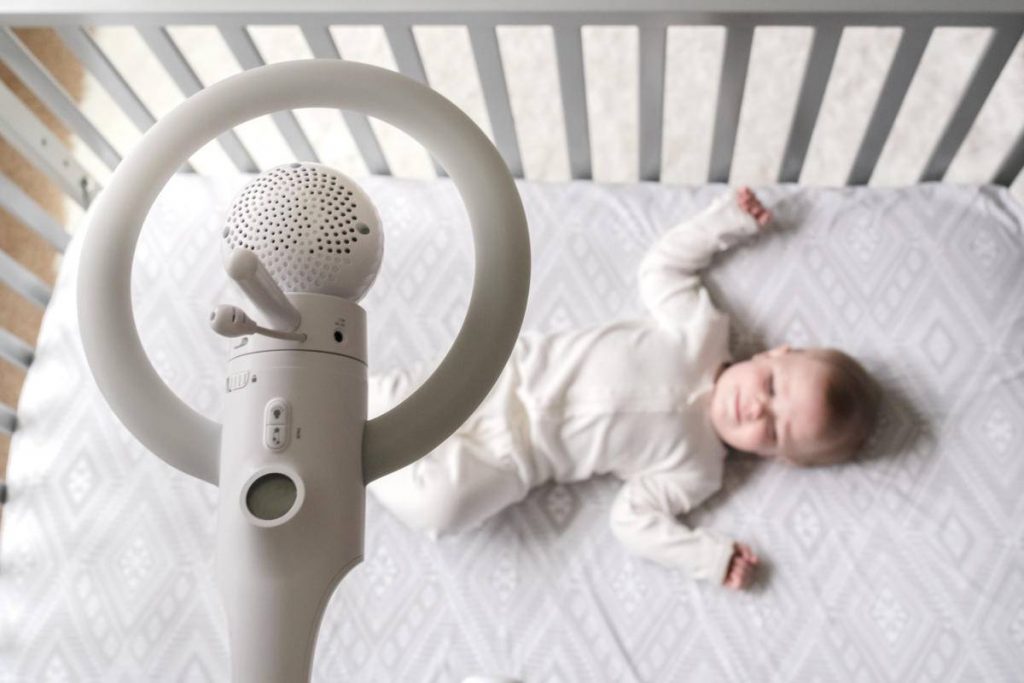New parents, especially those who are also first-time parents, often struggle with the question of when to introduce their infant to the outside world for the first time.
Babies are vulnerable because their immune systems have not matured enough to protect them from disease.
Paediatricians generally agree that as long as parents practise common sense and take necessary precautions, infants can be taken out in public and outside immediately.
It's not necessary to hold off until the baby is six weeks or two months old. Parents and infants can enjoy time outside together, especially in natural settings.
Vitamin D production is aided by time spent in natural light, and both mental and physical performance receive a boost from exposure to fresh air and sunshine.
When Is A New Baby Safe To Leave The House?
There is no need to hurry and plan a trip. Mothers and their newborns often spend the first month or more at home together in several societies.
However, whenever you feel comfortable doing so, you can take your infant outside. Going out is easier when everyone in the family is in a good mood, even the infant. It's best to wait till after they've been fed and had their diaper changed.
Talk to your doctor before taking your infant outside if he or she was born prematurely or has a medical issue.
If you want to keep your newborn healthy and safe in the first few weeks and months, it's important to be cognisant of your surroundings and the people you interact with.
Be sure to keep in mind some basic guidelines when venturing out with baby:
My Baby Nursery has the best baby nursery products to help create your dream baby room.
How Should You Dress Your Baby?
Keeping your baby at a comfortable temperature is crucial. When your child is overheated or underheated, you can tell by touching their forehead.
Don't use your sense of touch to determine the baby's core body temperature; their hands and feet will likely feel cold to the touch.
Dressing your infant in layers that can be easily removed and replaced is a smart idea. Put them in an extra layer if you don't mind feeling hot.
Wrap your infant in a blanket and a cap if it's chilly outside. Take off some clothing before entering a heated building.
Protect your kid from the sun and make sure they stay cool if it's warm outside.
Infants are especially susceptible to overheating since they can't regulate their body temperature as effectively as adults can.
On a hot day, your infant should be dressed in as little as possible, but you should still take precautions to protect his or her delicate skin from sun damage by covering his or her arms and legs. Your infant's head needs to be sufficiently protected, so a hat is a must.
What To Take?
Think about taking a short trip as a test run. Even if you'll only be gone for a few hours, you should still bring along some baby necessities in case your child gets hungry or dirty. Gather these items and put them in a bag:
- 6 to 10 nappies, based on the length of the outing
- wipes (you can place these in a suitable travel case)
- pad of change
- 2 to 3 outfit changes
- weather-dependent accessories (hat, blankets, sunshade)
- 2 blankets
- diaper bag
- a plastic bag for dirty clothes or diapers
- Sanitizer for the hands
- If you are bottle-feeding, you will need formula and bottles.
How Should You Transport Your Baby?
You may get some fresh air and exercise while keeping your kid safe and secure in a stroller or pram. Verify that AS/NZS 2088, an Australian standard, has been met by the stroller.
Put the brakes on the stroller whenever you stop and always use the 5-point harness to keep your baby safe.
Put your baby's diaper bag in the pram's undercarriage storage strap, not on top of the handles.
Having your hands free while out and about is made possible by using a baby carrier or sling. Make the necessary modifications so that you can use it with comfort.
Make sure you're wearing supportive footwear, and watch your step on any sloping ground.
Because of the risk of overheating, you shouldn't wear your infant in a carrier or sling while the temperature outside is high.
Babies younger than six months are required by law to ride in a rear-facing car seat, capsule, or booster.
It is mandatory in Australia that all car seats meet the requirements of AS/NZS 1754.
Keeping Your Baby Safe
The sun poses a significant risk to infants born in Australia. They should ideally be kept in the shade at all times.
It would be best to drape a cloth over the stroller while allowing some air flow through. If you don't have an umbrella handy, you can always utilise the pram's canopy top.
Avoid using sunscreen on infants under six months of age. Apply sunscreen to your baby's exposed skin, including regions that are not protected by wraps, clothing, or a hat, if they must spend time in direct sunlight.
Babies' immune systems are not yet fully formed, so it's important to keep them away from anyone who might be ill.
They will be safer if they are immunised. Whooping cough, however, can be fatal for infants because they typically do not develop immunity for several months after birth, and sometimes even longer.
If you think your infant has come into touch with someone who has a whooping cough, you should take them to the doctor immediately.
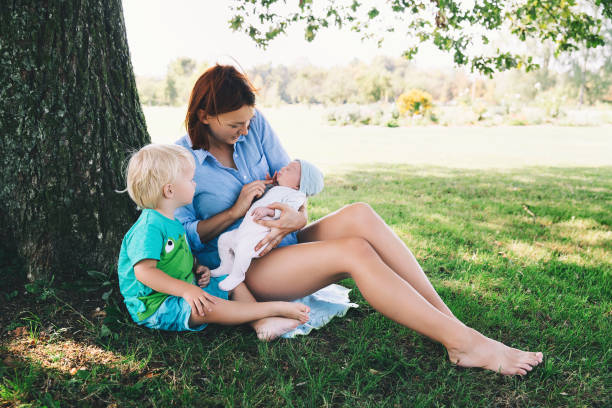
Exposure To The Sun Is Limited
Vitamin D, produced by exposure to sunlight, is necessary for everyone but is especially important for newborn infants. Newborns, however, also have a higher risk of getting a sunburn.
Exposure to direct sunlight should be kept to a minimum (about 15 minutes), and then protected with clothing or sunscreen. If you're concerned about how much sun exposure is safe for your child, it's best to consult with a medical professional.
Stay Away From Germy Hands And Faces
This is a simple yet vital piece of advice to remember. It's impossible to know for sure which youngsters are ill, but it's generally safest to prevent them from touching your baby's face, eyes, and mouth.
It is also wise to avoid letting strangers hold or touch your infant. Even among relatives, pickiness is possible.
Hopefully, a sick relative will know better than to beg to hold the infant.
You are well within your rights to respectfully and firmly refuse anyone who requests to hold a baby. A threat to their wellbeing exists!
Choose Your Location Wisely.
Places like classrooms, waiting rooms, hospitals, daycares, and aeroplanes are hotbeds for the spread of germs and should be avoided if at all feasible.
If you can't do that, cover your baby's stroller or carrier to keep the elements out.
Wash your hands often so you don't spread germs you could have picked up from surfaces or other people.
Beware Of The Heat (And Cold)
Dress your infant appropriately for the weather.
The general consensus among parents and grandparents is that infants should be kept warm at all times, regardless of the temperature outside.
Bring a blanket and make sure your infant is dressed in as many layers as you are.
When Should People Be Allowed To Visit Your Newborn?
There is no set timetable for when visitors should be permitted after the birth of a child, but here are some things to think about.
The quick answer: Whenever you feel at ease!
There is no hard-and-fast rule for when guests should be let in following the birth of a baby (much less who gets priority for newborn snuggles!).
Here are some things to think about while you and your partner plan for visitors to meet your newborn:
Should People Visit My New Baby In The Hospital?
Many mothers-to-be debate amongst themselves whether or not to welcome visitors to the hospital after giving birth.
While some new parents would rather relax and recuperate at the hospital before welcoming guests, others welcome those closest to them there.
Having a child is a huge undertaking, and you should take some time off to recover and settle into motherhood. There is a lot that goes on during a hospital stay, from feedings to diaper changes to checks by nurses and physicians. It's acceptable to decline a visit if you're not feeling social.
No matter how you personally feel about it, hospital policy must always take precedence.
Find out in advance how many guests you can have, when they can visit, and if there are any special screenings they must go through (temperature checks, etc.)
Our exclusive range of baby nursery products will help create the perfect baby nursery for your baby.
When Should I Allow Visitors To Meet My Newborn At My House?
You're the boss once you get inside! And while you're no doubt bursting with excitement at the prospect of showing off your new bundle of joy to friends and family, here are a few things to think about before you throw up your doors to guests:
Germs
For good reason, this is the main worry.
Your baby's immune system is still developing and isn't ready for pathogens. Only after two months of life does a newborn's immune system begin to be regarded as fully functional.
You can be as strict as you like; it's your house, your rules. They don't get to meet your child just yet if they can't respect your boundaries.
You might want to remind your guests to:
Are Vaccines Up To Date:
Infants' immune systems aren't fully formed, leaving them wide open to illness.
Therefore, it is important for parents and siblings to have the following routine immunisations at least two weeks before seeing the baby:
- Getting a flu shot every year
- Pertussis (whooping cough) vaccination (also known as DTaP in younger children and Tdap in older children and adults).
If They Are Sick, Stay Away:
Avoid having people over who are sick (coughing, fever, cold, or flu symptoms) until they are completely well.
Wash Your Hands Often:
Encourage guests to clean their hands with soap and water before holding your newborn. When deciding how often and when to ask guests to wash up, trust your gut.
Allow The Baby Some Space:
You might want some people to come meet the newborn, but you might not be ready to let everyone hold the infant just yet. That's okay with me, Mom.
You can limit it if you like. If you don't want people holding the baby, you can ask them to stay away from the infant's face. If you're working with someone else, make sure you're all on the same page regarding the guidelines.
Wear/Bring A Mask:
Anyone caring for a baby during flu season or a pandemic should protect themselves by donning a mask.
Your Recovery
You've gone through a lot, so don't sacrifice rest and rehabilitation for the sake of visitors.
Before inviting guests over, make sure you're in a decent mental and physical state. A sleep-deprived new mother doesn't need the added stress of having too many visitors.
Even if you're overjoyed to have loved ones come see your new baby, you may find that their visits are draining. Never be afraid to put restrictions in place.
Take Care Of Yourself
Don't start treating caffeine like it's a vitamin or using it as a sleep aid.
Instead, maintain a healthy lifestyle by eating right, staying hydrated, and spending time outdoors.
As much as possible, you and your spouse should strive to establish a nocturnal routine that allows you to take turns sleeping and caring for the baby.
Developing healthy routines will help you keep up your strength so you can care for your new baby.
Implement Visiting Rules
People you know and care about may appear out of nowhere to marvel at your new baby. Please let them know the best times to reach you and the days on which you are available for a visit.
The baby should be held only after visitors have washed their hands, and sick people should be asked to keep away.
Put your infant in the hands of reliable guests so you can get some shut-eye.
Go With The Flow
Make sure there's plenty of downtime for feedings, naps, and meltdowns throughout the day.
When you need to leave the house, give yourself plenty of time to get ready, including extra time to change diapers if necessary.
Be Prepared For An Emotional Roller Coaster
In the span of an hour, your feelings about your infant may shift from utter adoration to sadness as you mourn the loss of your freedom and worry about your capacity to care for your bundle of joy.
Both you and your significant other are probably exhausted and worried.
Staying in touch is facilitated by sharing your stresses, be they financial or related to calming the infant. The two of you might feel better after sharing a good chuckle.
Relax Your Standards
Don't bother moving the dust bunnies from where they currently rest; instead, put clean laundry in a basket or piles on the floor.
Use a new diaper wipe to sanitise the toilet. When you're too wiped out to cook anything more substantial for dinner, serve cold cereal and peanut butter toast instead.
Leave The House!
Take your cranky infant for a walk if you need a break from being stuck indoors. Put your trust in a trusted colleague and give them the reins for a while.
Accept A Helping Hand
Take advantage of the assistance offered by friends and family members. Ask for help with whatever you need, whether it's carrying the baby, doing the laundry, or doing errands.
Strive For Other Relationships
Your newborn will thrive with or without you, so don't feel guilty about enjoying some adult company.
Let's pretend you're a parent to more kids. Schedule individual meetings with each of them. Make plans to spend time together with your significant other. Get together with a pal for some food and entertainment.
Remain Perspective
A new baby's infant stage doesn't endure forever. In the midst of the mayhem, take a breath and enjoy the present.
Know When To Ask For More Help
Parenting is difficult even on the best of days. Seek medical or mental health attention if you're feeling down or having problems adjusting to life with a new baby.
Mastering your ability to deal with this new source of stress will allow you to fully benefit from becoming a parent.
FAQs About Newborn
There are no hard and fast rules on when a newborn should be introduced to the outside world or when visitors should be allowed. Some paediatricians advise waiting a few months after giving birth before bringing a newborn into a public setting with many people (like malls, movie theatres, and aeroplanes).
It's a MYTH that new parents must confine their infants to the house for weeks after giving birth. As long as your infant is healthy, getting outside and enjoying the fresh air can benefit both of you. Before leaving the house, ensure your kid is warm and warm enough.
How to Protect Your Infant
- Avoid unnecessary public contact.
- Cover the infant carrier (NOT THE INFANT) with a blanket if you must take your baby out in public.
- Do not leave your child alone ever.
- Keep your hands clean.
- Always wash your hands (and any siblings' hands) as soon as you get home.
Parents typically begin kangaroo care once or twice a day for a minimum of one hour or as long as the baby can bear it. The longer you can cuddle and bond with your child, the better. Any length of time is beneficial, but it is recommended that you aim for at least one to two hours daily.
Say something like, "The baby needs to eat, so we're going to give him space," or "We can only touch the baby's feet," if you're in a large group. Parents must maintain firm boundaries on who can and cannot hold their child. They are pressured to feel bad but putting a newborn's life in danger is never okay.
Conclusion
Exposing their baby to the world for the first time is a major concern for new parents. Infants are more susceptible to illness because their immune systems have not fully developed. As long as parents use common sense and take reasonable safety measures, paediatricians believe that infants can be taken out in public immediately. Your baby should be wearing as few clothes as possible on hot days. However, it would help if you kept protecting their sensitive skin from the sun.
Verify if the stroller conforms to the Australian and New Zealand Standard 2088. An immediate trip to the doctor is needed if your infant has been exposed to someone with whooping cough. Protect infants from the sun and keep them out of direct sunlight to reduce the likelihood of sunburn. Some expectant mothers are hesitant to invite guests to the hospital, while others can't wait to show off their new baby. Infants are particularly vulnerable to sickness because their immune systems are still developing.
It's best to wait until everyone feels well before inviting over anyone sick (coughing, fever, cold, or flu symptoms). Make sure you're in relatively good shape emotionally and physically before having people around to meet your new kid. Schedule lots of daily breaks for feedings, naps, and tantrums. Staying on top of your health game will provide the stamina you need to care for your newborn.
Content Summary
- Paediatricians generally agree that as long as parents practise common sense and take necessary precautions, infants can be taken out in public and outside immediately.
- Parents and infants can enjoy time outside together, especially in natural settings.
- However, you can take your infant outside whenever you feel comfortable doing so.
- Talk to your doctor before taking your infant outside if they were born prematurely or have a medical issue.
- To keep your newborn healthy and safe in the first few weeks and months, you must be cognisant of your surroundings and the people you interact with.
- Keeping your baby at a comfortable temperature is crucial.
- Wrap your infant in a blanket and a cap if it's chilly outside.
- Take off some clothing before entering a heated building.
- On a hot day, your infant should be dressed in as little as possible, but you should still take precautions to protect their delicate skin from sun damage by covering their arms and legs.
- You may get fresh air and exercise while keeping your kid safe and secure in a stroller or pram.
- Having your hand's free while out and about is made possible by using a baby carrier or sling.
- Because of the risk of overheating, you shouldn't wear your infant in a carrier or sling while the temperature outside is high.
- They should ideally be kept in the shade at all times.
- If you think your infant has come into touch with someone who has whooping cough, you should take them to the doctor immediately.
- If you're concerned about how much sun exposure is safe for your child, it's best to consult with a medical professional.
- It is also wise to avoid letting strangers hold or touch your infant.
- Dress your infant appropriately for the weather.
- Here are some things to think about while you and your partner plan for visitors to meet your newborn: Many mothers-to-be debate amongst themselves whether or not to welcome visitors to the hospital after giving birth.
- Your baby's immune system is still developing and not ready for pathogens.
- You can be as strict as you like; it's your house, your rules.
- If you don't want people holding the baby, you can ask them to stay away from the infant's face.
- Before inviting guests, ensure you're in a decent mental and physical state.
- Never be afraid to put restrictions in place.
- Instead, maintain a healthy lifestyle by eating right, staying hydrated, and spending time outdoors.
- Healthy routines will help you keep up your strength to care for your new baby.
- Put your infant in the hands of reliable guests so you can get some shut-eye.
- Make sure there's plenty of downtime for feedings, naps, and meltdowns throughout the day.
- Take your cranky infant for a walk if you need a break from indoors.
- Please put your trust in a trusted colleague and give them the reins for a while.
- Take advantage of the assistance offered by friends and family members.
- Ask for help with whatever you need, whether it's carrying the baby, laundry, or errands.
- Schedule individual meetings with each of them.
- Make plans to spend time together with your significant other.
- Get together with a pal for some food and entertainment.
- In the midst of the mayhem, take a breath and enjoy the present.
- Parenting is difficult even on the best of days.
- Seek medical or mental health attention if you're feeling down or having problems adjusting to life with a new baby.
- Mastering your ability to deal with this new source of stress will allow you to fully benefit from becoming a parent.

